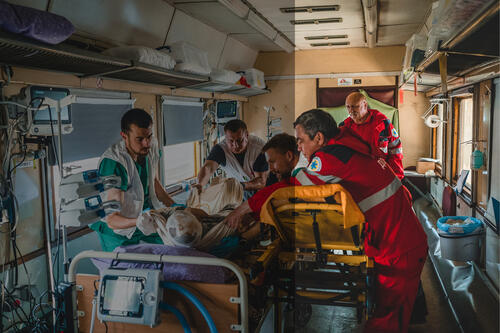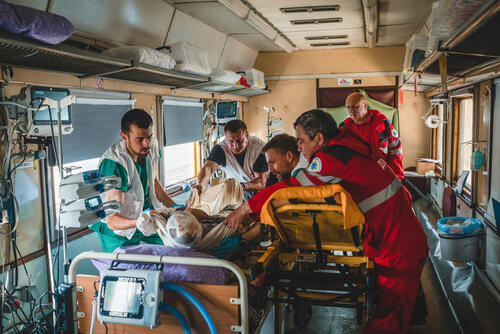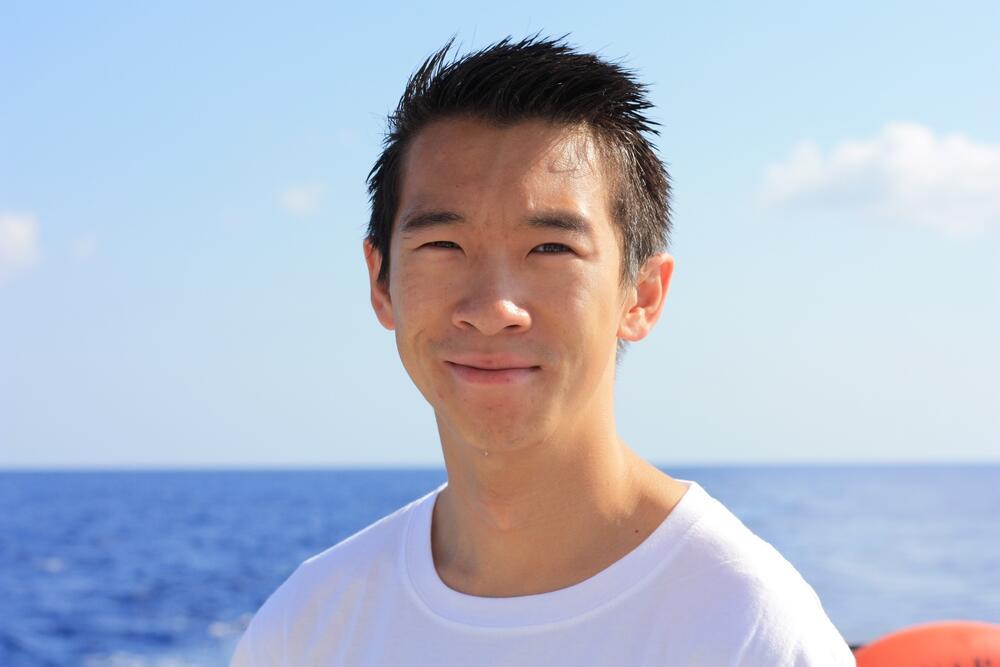Meet MSF nurse Michael Shek
“For as long as I can remember, I’ve wanted to help people. I knew the only career that would fulfil me would be in medicine, so when I finished school I started my nurse training right away.”
Médecins Sans Frontières/Doctors Without Borders (MSF) nurse Michael Shek grew up in Dumfries and Kilmarnock. After graduating from Napier University in Edinburgh, he moved to London, working his way up to Charge Nurse in a busy A&E.
But he was deeply moved by the actions of aid workers who rushed to Haiti in the wake of the 2010 earthquake.
“I’d see all sorts of emergencies, from car crashes to stabbings and shootings, but I always felt like there was a way I could do more with my skills. When I read about the civil war in South Sudan and the terrible conditions, I had to do something.
“I signed up with Médecins Sans Frontières. My parents were livid and worried when they found out I was going into a war zone, but I just had to go.”
South Sudan
Michael’s first assignment with MSF took him to Leer, in central South Sudan.
“Arriving at the hospital was a shock,” says Michael. “The building had been shelled to ruins, and we slept in tents with no running water or electricity. Scorpions and spiders were everywhere, at night hyenas would stalk the compound, and eagles nested in the trees, swooping down to steal our food.
“My job was to do my best for the patients, working with very limited resources. Beyond the walls of the compound, the war raged on, and the trauma we saw was relentless – gunshot wounds and blast injuries, but also a lot of children with malnutrition."
Listen to Michael describe his work in South Sudan on Everyday Emergency, the MSF podcast
During a patient transfer from Leer to the capital Juba, Michael had to make one of the toughest calls of his nursing career. At 10,000 feet.
“My patient, a 10-year-old boy and victim of the country’s vicious civil war, was dying from his gunshot wounds before my eyes. His lungs had collapsed because of the air pressure on the plane, and I was terrified he would die before I could get him to hospital in the capital of Juba.
“I was the only medic on the plane, and I was also caring for another gunshot victim, the boy’s uncle. With sweat pouring down my face, I knew the only way I could save him was to puncture his chest with a needle and allow the air to escape.
“Normally, this sort of procedure needs an ultrasound or X-ray, but I knew if I didn’t act straight away the little boy would die – I had no choice but to punch the needle into his chest. The sound of the trapped air hissing out from the cavity filled me with so much relief I nearly cried. This boy, at least, was going to survive.”
Could you be an MSF nurse?
Find out more about what we're looking for in an MSF nurse, and how to submit an application.
Syria
Following a brief assignment aboard MSF’s Aquarius search and rescue ship in the Mediterranean, Michael embarked on his third assignment to Raqqa, Syria.
Listen to Michael describe his work in Syria on Everyday Emergency, the MSF podcast
“Raqqa is littered with improvised explosive devices and unexploded devices, a particularly cruel legacy in areas out of conflict.
“People are beginning to return to their homes, but it is incredibly dangerous. Rubble covers most of the city and there are still hundreds of thousands of explosives.
“When people come back to their houses, they have no idea what is around the corner. There could be explosives rigged up to their kitchens, under their beds, or in the light switches in the walls.
Sometimes the things I have seen do keep me up at night but you have to remember the lives you have helped to save. Amid the suffering, you also see the best, most brilliant side of humanity too.
“That’s such a scary thing to think about. I can’t even comprehend how people are coming back and trying to restart their lives. Even some children’s books are rigged with explosives.
“When I first arrived, we were seeing about 400 people every day in our outpatient department. MSF has the only medical facility in the city treating things like diarrhoea, coughs, colds and non-communicable diseases.
“Most of our patients haven’t had access to medical care for months, sometimes years, so in some cases these chronic conditions become life-threatening.”
Life at home
“Whenever I finish an assignment, MSF flies me to Amsterdam to see a psychologist to make sure I’m not suffering from post-traumatic stress disorder.
“It takes a while to adjust to life in the UK, but the post-assignment care is great, with a team checking on you regularly. You make friends for life when you’re in that environment, and I’m very lucky to have people around who support me.
“Sometimes the things I have seen do keep me up at night but you have to remember the lives you have helped to save.
“Amid the suffering, you also see the best, most brilliant side of humanity too.
“I met a woman who arrived at the camp in South Sudan with 20 children. They weren’t her own children but she had looked after them, kept them safe, found what food she could for them and brought them with her to the camp.
“And when you see a seriously ill child you have treated not only alive but out playing again, that’s a pretty amazing sight.”
Help us save lives in conflict zones
The impact of conflict goes far beyond the frontlines. And so do we...

Help us save lives in conflict zones
From Ukraine to Yemen and the Democratic Republic of Congo, the impact of conflict goes far beyond the frontlines. And so do we...
Checkmate... Yes, Yes, without the oops! Do you have any idea how long it takes those cups to decompose. God creates dinosaurs. God destroys dinosaurs. God creates Man. Man destroys God. Man creates Dinosaurs. You know what? It is beets. I've crashed into a beet truck.
Did he just throw my cat out of the window? Life finds a way. Hey, take a look at the earthlings. Goodbye! Do you have any idea how long it takes those cups to decompose. God creates dinosaurs. God destroys dinosaurs. God creates Man. Man destroys God. Man creates Dinosaurs.
Jaguar shark! So tell me - does it really exist? I was part of something special. Must go faster. Did he just throw my cat out of the window? Hey, take a look at the earthlings. Goodbye! They're using our own satellites against us. And the clock is ticking.
They're using our own satellites against us. And the clock is ticking. Did he just throw my cat out of the window? I gave it a cold? I gave it a virus. A computer virus. Must go faster. Life finds a way. God help us, we're in the hands of engineers. Hey, you know how I'm, like, always trying to save the planet? Here's my chance.

